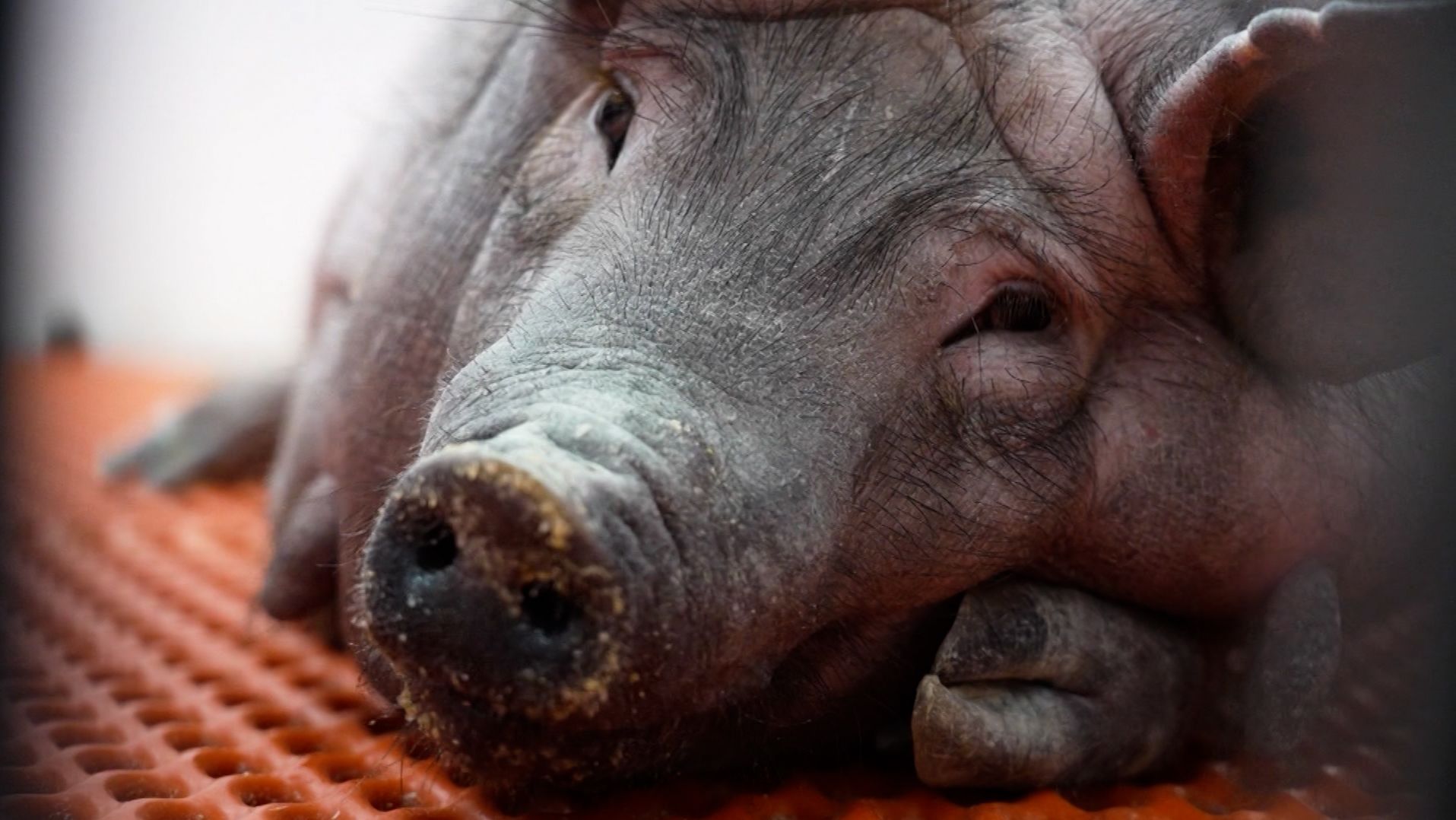Science
Pig Kidney Transplants Advance with FDA Approval for Trials

Researchers are poised to enter a new phase in organ transplantation, as the US Food and Drug Administration (FDA) has granted approval for human trials involving genetically modified pig kidneys. This development, announced by the biotech company eGenesis, marks a significant step forward in the quest to address the severe shortage of available organs for transplant.
The use of pig organs in humans, known as xenotransplantation, has been a subject of intense research due to the increasing number of patients awaiting organ donations. According to the American Association of Kidney Patients, over 100,000 individuals in the US are currently on the organ waitlist, with 86% of those needing a kidney. The average wait time for a kidney transplant ranges from three to five years, with some patients, particularly those with type O blood, facing waits that can extend up to ten years.
Advances in Genetic Modification
To enhance compatibility between pig organs and human recipients, eGenesis employs the CRISPR technology to edit the genes of their pigs. This process involves disabling a gene responsible for producing a carbohydrate known as alpha-gal, which can trigger immediate organ rejection in humans. By modifying the pigs in this way, researchers aim to increase the likelihood of successful transplants.
On June 14, 2024, doctors at Massachusetts General Hospital conducted an experimental pig kidney transplant on Bill Stewart, a 54-year-old athletic trainer from Dover, New Hampshire. After struggling with high blood pressure and kidney function that had dropped to 10% to 15% of normal, Stewart underwent dialysis for more than two years. Since the transplant, he has returned home and resumed work, expressing optimism about his future. “It’s been a fantastic thing,” Stewart remarked, highlighting the importance of re-engaging with his professional life and outdoor activities.
Patient Experiences and Future Trials
Stewart is among the first patients participating in this groundbreaking research. His transplant followed previous procedures at the same hospital, including the case of Rick Slayman, who received a pig kidney in March 2024 but unfortunately passed away two months later due to unrelated cardiac issues. Another patient, Tim Andrews, received a pig kidney in January 2024 and continues to thrive as the longest-living recipient of such an organ.
The trials will not only focus on patients with severe health issues but also aim to study healthier individuals to better assess the durability of the organs. Dr. Leonardo Riella, a transplant nephrologist involved in these studies, noted that understanding how the pig kidneys perform across a broader population is crucial. “We don’t see all the other complications that, unfortunately, dialysis can cause over time,” he stated, emphasizing the need for comprehensive research.
As these trials progress, eGenesis plans to treat up to 33 patients over the next two and a half years, while United Therapeutics is preparing to begin its own trials, aiming for a patient base of 50. This coordinated effort among leading biotech firms and research institutions underscores a collective commitment to overcoming the organ shortage crisis.
The advancements in xenotransplantation hold promise, especially as a survey conducted by the American Association of Kidney Patients revealed that more than 70% of respondents would consider receiving a pig kidney if it were FDA-approved. As the medical community embarks on this next chapter, the potential for pig organ transplants to transform the landscape of organ donation is becoming increasingly tangible.
Dr. Robert Montgomery, a pioneer in xenotransplantation, expressed his enthusiasm for the current progress, stating, “I have felt for a long time that if we could just get a pig kidney into a human, we would make it work.” With growing optimism surrounding these trials, the hope is that they will pave the way for a future where organ shortages become a challenge of the past.
-

 Technology5 months ago
Technology5 months agoDiscover the Top 10 Calorie Counting Apps of 2025
-

 Health2 months ago
Health2 months agoBella Hadid Shares Health Update After Treatment for Lyme Disease
-

 Health3 months ago
Health3 months agoErin Bates Shares Recovery Update Following Sepsis Complications
-

 Technology4 months ago
Technology4 months agoDiscover How to Reverse Image Search Using ChatGPT Effortlessly
-

 Technology1 month ago
Technology1 month agoDiscover 2025’s Top GPUs for Exceptional 4K Gaming Performance
-

 Technology2 months ago
Technology2 months agoElectric Moto Influencer Surronster Arrested in Tijuana
-

 Technology5 months ago
Technology5 months agoMeta Initiates $60B AI Data Center Expansion, Starting in Ohio
-

 Technology5 months ago
Technology5 months agoRecovering a Suspended TikTok Account: A Step-by-Step Guide
-

 Health4 months ago
Health4 months agoTested: Rab Firewall Mountain Jacket Survives Harsh Conditions
-

 Lifestyle5 months ago
Lifestyle5 months agoBelton Family Reunites After Daughter Survives Hill Country Floods
-

 Technology4 months ago
Technology4 months agoHarmonic Launches AI Chatbot App to Transform Mathematical Reasoning
-

 Technology3 months ago
Technology3 months agoUncovering the Top Five Most Challenging Motorcycles to Ride




















